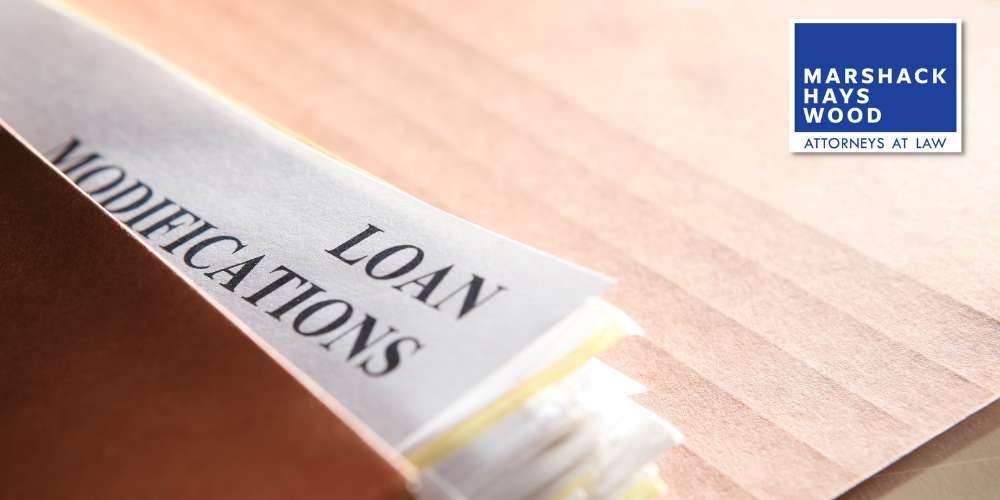Loan Modification Lawyer in Orange County
Home » Loan Modification
Practice Areas
Experienced Loan Modification Attorneys in Southern California

At Marshack Hays Wood, our Orange County loan modification lawyers understand the challenges individuals face when dealing with financial difficulties that could lead to bankruptcy.
With an in-depth understanding of local and federal laws, our loan modification lawyers are dedicated to helping clients secure more manageable loan terms, aiming to prevent foreclosure and alleviate financial stress. Our proven track record in assisting Orange County residents with loan modifications is a testament to our commitment to delivering personalized, effective legal solutions.
Whether you’re seeking to modify your mortgage or other types of loans, call Marshack Hays Wood at (949) 333-7777 to schedule a free consultation with an experienced loan modification lawyer.
What is a Loan Modification?
A loan modification is a process in which the terms of a borrower’s existing loan are altered by agreement with the lender to provide more affordable payments. This adjustment can involve extending the loan term, reducing the interest rate, changing from a variable interest rate to a fixed one, or even reducing the principal balance.
The primary goal of loan modification is to make loan payments more manageable for the borrower, reduce the risk of default, and help avoid foreclosure. It is a tool for individuals facing financial hardships, such as a loss of income or unexpected expenses, allowing them to retain ownership of their property and achieve long-term financial stability.
Loan Modification vs. Refinance
Loan modification and refinancing are two distinct strategies for adjusting the terms of a loan, each catering to different circumstances and objectives.
A loan modification is a change in the terms of an existing loan agreement made by the lender to accommodate a borrower facing financial difficulties, aiming to lower monthly payments and make the loan more affordable without altering the original loan amount. This option benefits those who may not qualify for refinancing due to credit issues or other financial challenges.
On the other hand, refinancing involves taking out a new loan to pay off an existing one, potentially offering more favorable terms such as a lower interest rate, different loan duration, or a change in loan type. Refinancing is often pursued by borrowers in good financial standing seeking to take advantage of better market conditions or improve their debt.
While both options aim to improve a borrower’s financial position, the choice between loan modification and refinancing depends on the individual’s financial health, goals, and the lender’s willingness to negotiate.
Partial Claim vs Loan Modification
A partial claim and a loan modification are two mechanisms lenders and borrowers use to address difficulties in loan repayment, but they accommodate different scenarios and have distinct characteristics.
A partial claim is a form of financial assistance, typically available for FHA-insured loans, where the lender allows the borrower to take out a second loan in the form of a lien. This second loan covers past due amounts, including principal, interest, taxes, and insurance, allowing the borrower to catch up without altering the terms of the original mortgage. The partial claim is usually payable when the first mortgage is paid off, or the property is sold.
However, a loan modification directly alters the existing loan’s terms, aiming to reduce the borrower’s monthly payments through changes in interest rate, loan term extension, or principal reduction.
While a partial claim is essentially a way to defer debt to avoid immediate default, a loan modification seeks to make the loan sustainably affordable over the long term. The choice between the two depends on the borrower’s specific financial situation, loan type, and lender’s policies.

Types of Loan Modifications in California
In California, homeowners and borrowers can access various loan modification options to address their unique financial challenges.
From altering interest rates and extending loan terms to reducing principal balances, California offers a variety of solutions tailored to fit the diverse needs of its residents. Whether facing temporary setbacks or more significant financial hurdles, understanding the types of loan modification can empower Californians to make informed decisions about managing their mortgage and other loans effectively.
Mortgage Loan Modification
A mortgage loan modification is a financial relief strategy for homeowners struggling to meet their mortgage payments due to financial hardships such as loss of income, medical emergencies, or unexpected life events.
The mortgage loan modification process involves renegotiating the terms of a loan with the mortgage lender to make the monthly payment more affordable for the borrower. A mortgage modification can include lowering the interest rate, extending the loan term, converting from a variable to a fixed interest rate, or occasionally reducing the principal balance owed.
FHA Loan Modification
An FHA loan modification is a specific type of loan modification designed for borrowers with loans insured by the Federal Housing Administration (FHA). This program helps those experiencing financial hardship by modifying the terms of their existing FHA-insured mortgage to lower the monthly payments to a more manageable level.
The adjustments made through an FHA loan modification can include lowering the interest rate, extending the loan term, and, in some cases, incorporating past-due amounts into the remaining loan balance to bring the mortgage current.
VA Loan Modification
A VA loan modification is a specialized option available to veterans, service members, and their surviving spouses facing financial hardship and struggling to keep up with mortgage payments on their VA-backed loans.
This loan modification process allows for restructuring the terms to reduce the monthly payment without refinancing. Changes may include adjusting the interest rate, extending the length of the loan, and sometimes even reducing the principal balance.
Car Loan Modification
A car loan modification relieves individuals struggling to keep up with their auto loan payments. Similar to mortgage loan modifications, this process involves negotiating with the auto lender to alter the terms of the existing car loan to make it more manageable for the borrower.
Car loan modifications are particularly beneficial for those experiencing temporary financial setbacks and wishing to avoid repossession of their vehicle. By providing a more affordable payment structure, car loan modifications can help borrowers maintain possession of their vehicle, which is often essential for commuting to work and daily activities.
SBA Loan Modification
SBA loan modification offers a financial lifeline for small business owners struggling to meet the terms of their Small Business Administration (SBA) loans. This type of loan modification is designed to adjust the terms to make the business more manageable.
Modifications can include extending the loan’s duration, reducing the interest rate, or restructuring the repayment schedule to lower the monthly payment obligations.

What is the Loan Modification Process in California?
The loan modification process in California involves several key steps designed to help borrowers facing financial difficulties. Initially, the borrower must contact their lender to make a loan modification request and to discuss their financial situation.
Documentation detailing financial hardship, such as proof of income, expenses, and any relevant changes to financial status, must be submitted with the loan modification application for evaluation.
Following this, the lender reviews the provided information to assess the borrower’s eligibility for a loan modification, considering factors like the borrower’s ability to make reduced payments and the likelihood of future default.
If approved, the lender proposes loan modification terms, including a reduced interest rate, an extension of the loan term, or a reduction in the principal balance. The borrower then reviews these terms and, if acceptable, agrees to the loan modification, which is formalized through a new loan agreement.
Loan Modification Requirements in Orange County
In Orange County, borrowers seeking a loan modification must meet specific requirements set by their lenders or loan servicers. These requirements usually include proving financial hardship through documentation such as recent pay stubs, tax returns, and a comprehensive list of monthly expenses.
Lenders look for evidence of a significant change in financial situation, such as a job loss, medical expenses, or an increase in living costs, that makes the current loan payments unsustainable. The property in question should be the borrower’s primary residence. Borrowers must also demonstrate a willingness and ability to make adjusted loan payments.

How to Get a Loan Modification Approved
Getting a loan modification approved requires careful preparation and a clear understanding of your lender’s criteria. Start by documenting your financial hardship, including any reduction in income, unexpected medical bills, or other significant changes in your financial situation.
Gather all applicable financial documents, such as pay stubs, tax returns, and a detailed list of monthly expenses, to demonstrate your current financial status and inability to maintain your original loan payments.
Hardship Letter for Loan Modification
A hardship letter is a critical piece of your loan modification application, serving as a personal statement that outlines your financial distress and requests assistance from your lender. This letter should be concise yet comprehensive, detailing the events that have led to your current financial challenges, such as a job loss, medical emergency, or any other significant life event impacting your ability to make payments.
It’s essential to express your intention to remain in good standing with the lender and your commitment to making the adjusted payments if the modification is approved. Be honest and straightforward in your explanation, providing a clear connection between your hardship and your request for a loan modification.

What Happens After a Loan Modification is Approved?
After a loan modification is approved, the borrower will enter a new phase of their financial agreement with the lender, who will provide a loan modification agreement detailing the new terms. It’s crucial for the borrower to thoroughly review and understand these new terms before signing the agreement to ensure they are aware of their obligations moving forward.
Following the execution of the agreement, the borrower will begin making payments under the new terms from the specified start date. Maintaining timely payments is important to avoid defaulting on the modified loan.
Do You Have to Pay Back a Loan Modification?
Yes, you do have to pay back a loan modification. A loan modification is not a forgiveness of debt but rather a restructuring of the loan’s terms to make the payments more manageable for the borrower.
While a loan modification can provide significant relief to borrowers, it’s important to understand that the modified loan still requires repayment under the new terms agreed upon with the lender.
A loan modification helps borrowers avoid default and foreclosure, ensuring they can continue to make payments and eventually pay off the loan over time under more favorable conditions.
Can I Refinance After a Loan Modification?
Refinancing after a loan modification is possible but comes with specific considerations and potential challenges. Lenders typically require a period of consistent, on-time monthly payments following a loan modification before they consider a borrower eligible for refinancing.
This period allows the borrower to demonstrate financial stability and rebuild creditworthiness, which are crucial factors in qualifying for a new loan with potentially more favorable terms.
The ability to refinance will also depend on the terms of the original loan modification, the borrower’s current credit score, the loan-to-value ratio, and the prevailing market conditions.
Does a Loan Modification Hurt Your Credit?
A loan modification can have a mixed impact on your credit score. Initially, it might lead to a slight decrease in your score because the lender may report the loan modification to credit bureaus as a change in terms due to financial hardship. However, the effect is generally less damaging than foreclosure or continued missed payments.
Over time, a loan modification can positively influence your credit by allowing you to make regular, on-time payments, demonstrating financial responsibility, and improving your creditworthiness.

Contact an Orange County Loan Modification Attorney at Marshack Hays Wood
If you’re considering a loan modification in Orange County, the experienced attorneys at Marshack Hays Wood are ready to assist. Our loan modification lawyers provide personalized, strategic advice to help you achieve a more manageable mortgage or loan payment, avoid foreclosure, and maintain your home.
By partnering with Marshack Hays Wood, you’ll gain an ally who will work tirelessly to negotiate terms in your best interest. Call Marshack Hays Wood at (949) 333-7777 to meet with an Orange County loan modification lawyer and take the first step toward regaining financial stability.
READY TO GET STARTED?
At Marshack Hays Wood, our attorneys provide the legal support you need to move forward with confidence. Let us help you take the first step toward financial stability.
